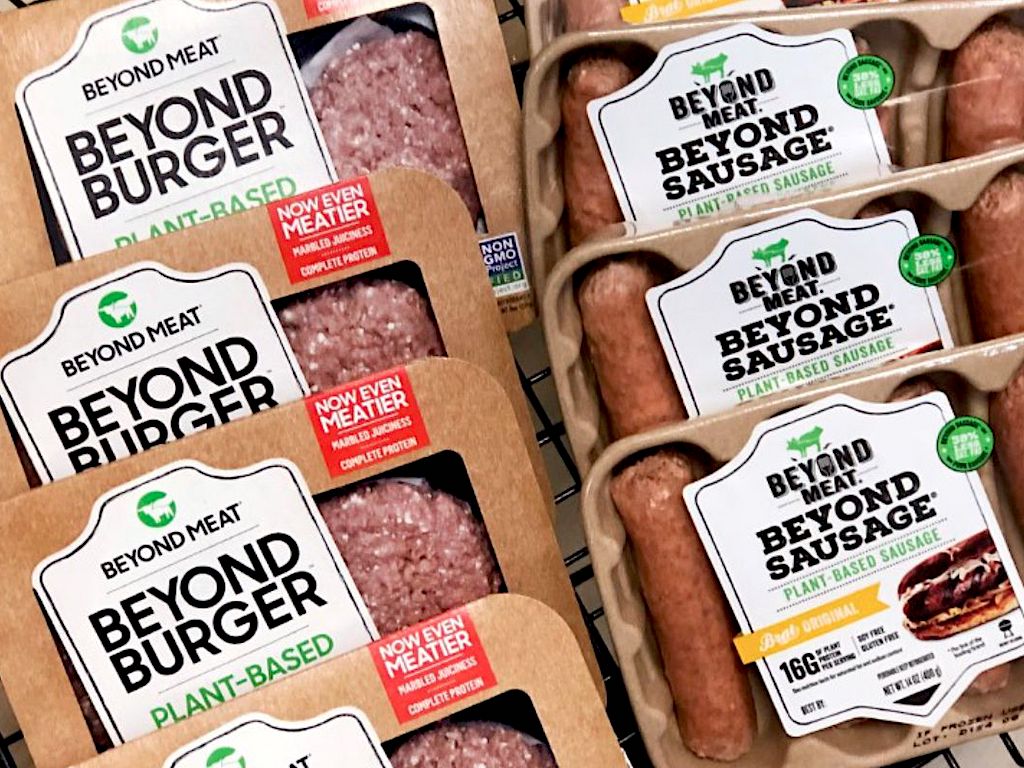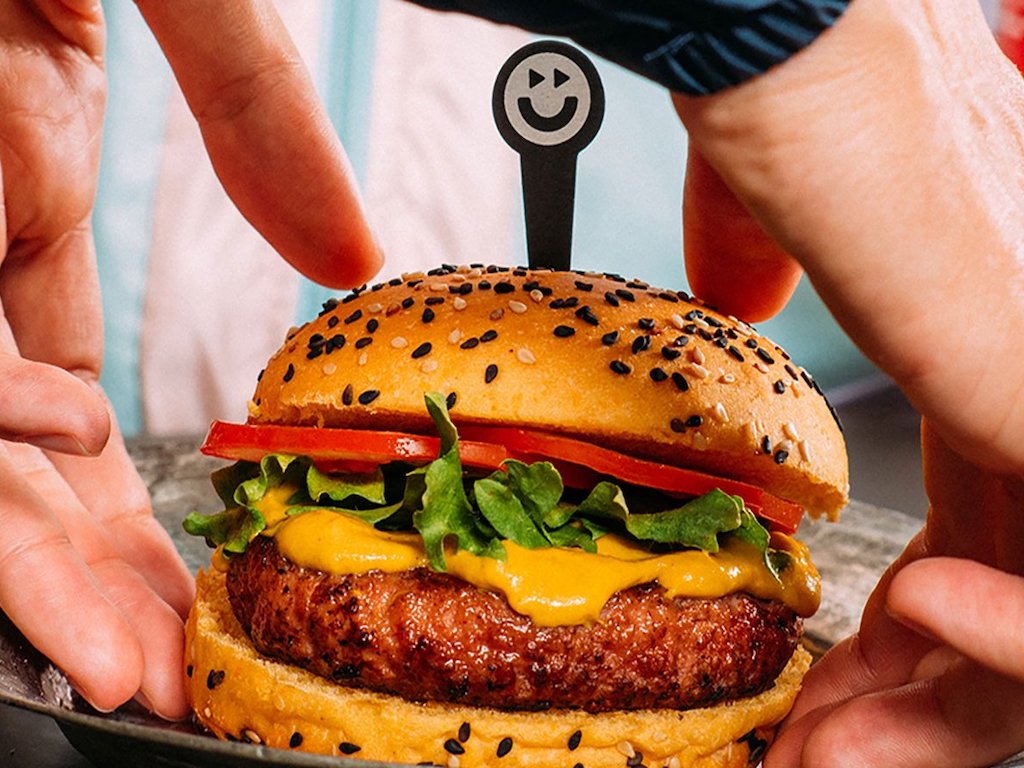7 Mins Read
The appetite for alternative proteins is reaching new heights all over the world, especially in the wake of the coronavirus pandemic, which has kicked off even greater consumer enthusiasm and investor interest in the fast-growing food tech world where entrepreneurs are racing to develop safer, more sustainable, and healthier proteins to meet rising demand. Latin America is no exception to the trend, where the alternative protein scene is heating up big and fast. From major buy-ins from food giants to startups doubling down their presence in the market, here’s a rundown of the exciting alt protein shift underway in the region.
Latin America’s Alt Protein Market: Here’s Everything You Need To Know
A majority of consumers want to eat more plant-based foods
A recent study conducted by multinational ingredients provider Ingredion, which surveyed consumers across Argentina, Brazil, Chile, Colombia and Peru, found that as much as 90% of the population want to eat more plant-based foods. The research, carried out in partnership with Argentinian market consultancy Opinaia, reported that the trend is driven by the growing awareness of health, followed by sustainability concerns.
A plant-based food shift could bring 19 million new jobs to the region
If this plant-based shift takes place on a large scale, it could bring a huge positive economic impact – a key consideration given the market turmoil as a result of the coronavirus crisis. Research from the International Labour Organisation (ILO) and the Inter-American Development Bank (IADB) recently revealed that mass dietary changes towards plant-based foods as a part of a plan to decarbonise the Latin America and the Caribbean (LAC) economy could bring 19 million new jobs to the region.

Softbank is betting on the region’s foodtech startups
Japanese multinational conglomerate holding company Softbank, who has backed some of the most famous tech firms and startups including Nvidia, Slack, Uber, and WeWork, is betting big on the growth of the Latin American plant-based market. Earlier this year, following the WeWork scandal, Softbank announced its plans to invest a number of plant-based food techs in the region, including Chile’s NotCo.
Beyond Meat is already in Brazil, the world’s third largest meat eating market
Giving yet another strong signal of the business opportunity to be made in Latin America’s alt protein market, food tech giant Beyond Meat recently launched in Brazil, the world’s third largest consumer and second biggest producer of beef.
Brazil is also where the first ever vegan large-scale food fair in the region took place
Another testament to the growing demand for plant-based alternatives within Brazil’s market is the launch of the Primera Feria de Alimentos Plant-Based, the country’s first-ever vegan food fair held earlier this year.

National food lobbies are already feeling threatened and fighting back
Like many other regions in the world, there are obstacles too when it comes to mainstreaming alternative protein products. One of the key challenges will be fighting the moves from big meat and dairy lobby groups who are pushing for protectionist policies against the rise of plant-based brands. In Mexico, for instance, authorities have approved a proposed bill to prohibit plant-based dairy alternatives to use traditional dairy terms on their labels.
Latam consumers are demanding more nutritious, artisanal, locally made and organic food options and startups are responding
One particular niche in Latin America’s alt protein scene is the rise of new startups specifically working on locally made, non-GMO, organic and vegan-friendly food products as consumers lean towards more nutritious and artisanal brands. Take Ecuadorian startup LiveKuna, for example, who is working directly with local farmers to create healthy foods that are certified organic, vegan,dairy-free, gluten-free and GMO-free and are now distributed across multiple countries in the region. Or Chilean company Siröpa, who is creating healthier preservative-free fruit-based syrups that have no added sugar.
Latam Plant-Based Meat Startups & Brands To Watch
The New Butchers (Brazil)
Founders: Nessim Abadi, Mariana Nakaie, Bruno Fonseca
Based in Brazil, this new food tech is recreating much-loved meats such as beef burgers, chicken tenders and even salmon fillets using only plant ingredients, such as pea protein, coconut oil and beetroot. It currently has a presence across 16 states in Brazil, sold in supermarkets and specialty stores, and is working on developing new products such as plant-based pork.

NotCo (Chile)
Founders: Matias Muchnick, Nicolas Szekasy & Karim Pichara
Since launching its plant-based mayonnaise product, Santiago-headquartered NotCo has developed vegan-friendly milk, ice cream and burger patties, and has a strong presence in its domestic market in Chile and across Latin America. The Jeff Bezos-backed company leverages artificial intelligence algorithms to look for patterns in foods that consumers crave to replicate these products using 100% plant ingredients. It recently closed a US$85 million funding round, taking its valuation to US$250 million.
The Live Green Co (Chile)
Founder: Priyanka Srinivas
Also based in Chile is The Live Green Co, a two-year-old food tech creating plant-based alternatives for everything from meat to baking mixes and supplements. It’s formulations are powered by its AI-forward software, Charaka, which uses biotech and machine learning to create natural and sustainable substitutes for animal products.
Tomorrow Foods (Argentina)
Founders: Agustin Belloso, Guillermo Daniel Lentini & Gonzalo M. Segovia
Buenos Aires-based startup Tomorrow Foods has developed a range of plant-based protein isolates derived from different non-GMO plant crops sourced locally in Argentina. Its products – LatinRice, LatinPea, LatinChickpea, and LatinMung – are designed to be easily incorporated into major manufacturers’ recipes. Since its inception just a few months ago, the company has tested its products with major food brands across Chile, Argentina and Brazil.

Fazenda Futuro aka Future Farm (Brazil)
Founders: Marcos Leta, Alfredo Strechinsky
Founded in 2019, Fazenda Futuro is a Brazilian vegan startup with a line of meat alternatives including burgers, meatballs and sausages. It has already established a foothold in international markets since its launch, including in Chile, Mexico, Uruguay and the Netherlands, and with its latest US$21.5 million investment, the company hopes to take its products to more countries in Europe and in Asia next year. The founders previously ran a juice which they sold to regional beverage giant Ambev back in 2016.
Terrafertil (Ecuador)
Founders: David Bermeo, Raul Bermeo, Daniel Bermeo
Ecuadorian company Terrafertil sells natural, organic, plant-based foods and healthy snacks across Mexico, Colombia, Peru, Chile, and the United Kingdom. Its flagship brand, Nature’s Heart, is best known for its dried Andean goldenberries, which are high in vitamins and antioxidants. Other products of the Nestlé acquired brand include dried bananas, organic cacao powder, coconut flakes, and supplement blends that contain plant-based omega-3s and other nutrients.

Behind The Foods (Brazil)
Founder: Leandro Mendes
Established in 2018, São Paulo-based Behind The Foods is a food tech that has developed a plant-based burger. Called the Behind Burger, the patty contains no soy or artificial ingredients, is gluten-free and allergen-free. There is very little information about the startup, which appears to be in stealth mode.
Superbom (Brazil)
CEO: Flávio André Nunes dos Santos
Superbom is a longtime Brazil-based vegan food brand (it was founded in 1925) that recently launched its ready-made frozen fish steaks that are 100% plant-based into Brazilian supermarkets. Made from pea protein and enriched with vitamin B12, the company hopes to fill the gap in the Latin American market when it comes to plant-based alternatives for seafood. Aside from seafood, the company has developed plant-based chicken and burger patties too.
Seara Foods Incredible Range (Brazil)
CEO: Joanita Karoleski
Seara Foods, which is owned by meat giant JBS, the world’s biggest meat processing company, has recently entered the plant-based market with a new “Incredible Range” that offers a number of plant-based protein alternatives primarily made from soy. There are five products so far, including two flavours of its Incredible Burger, Incredible Empanado, Incredible Kibe and Incredible Oriental Meat. Note; Seara Foods also manufactures meat products.
Heartbest Foods (Mexico)
Founders: Aldo González & Aniceto González Rodríguez
Heartbest is a Mexico’s first food tech producing plant-based dairy alternatives. Based in San Luis Potosi, the startup’s line-up includes vegan pea and amaranth milk, and several Vegicheez products ranging from plant-based mozzarella to cheddar and parmesan. Since its inception in late 2016, Heartbest has grown its presence to over 800 stores nationwide, including in some of the biggest retailers like Costco, Walmart, HEB, La Comer and Soriana.
Lead image courtesy of Fazenda Futuro.




